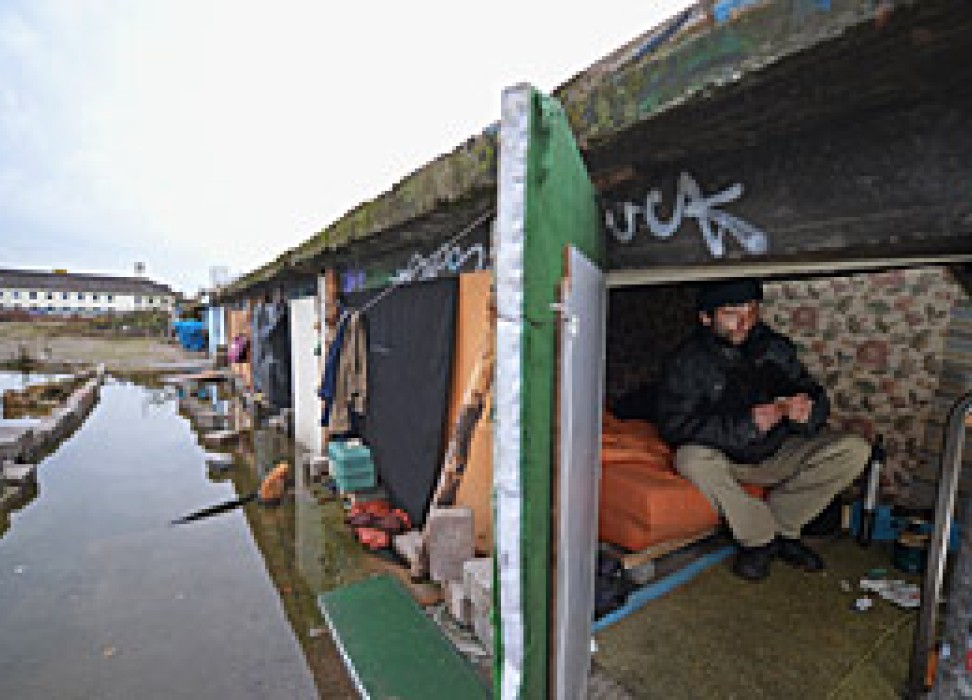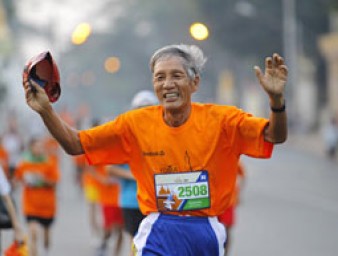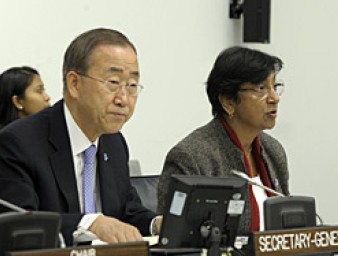New global development goals must fight inequality and discrimination
13 February 2014

“There is more than enough wealth in the world to eradicate poverty, but we must also address inequality,” said UN Human Rights Chief Navi Pillay at a high-level side event on 4 February, which was held during the Open Working Group on Sustainable Development Goals’ 8th Session at the United Nations headquarters in New York.
As governments met at the United Nations to discuss the future development goals, Pillay underlined that “the Sustainable Development Goals (SDGs) must be an agenda for more equitable and sustainable development, built on the firm foundation of the human rights principles of equity, equality and non-discrimination”.
Discrimination remains pervasive and inequalities are rising. According to a recent report by Oxfam, the 85 wealthiest individuals in the world now have the same wealth as the 3.5 billion poorest people all together. “We live in a world that is wealthier than ever before. Yet millions of people still struggle to feed their families. To eradicate poverty, we must address inequality,” Pillay said.
The event, “Addressing inequalities in the SDG’s: A human rights imperative for effective poverty eradication,” was co-organized by the UN Human Rights Office, UNICEF, and UN Women. The interactive dialogue, sponsored by the Permanent Missions of Finland and Brazil, brought together Member States, non-governmental organizations and a distinguished panel of experts to reflect on the causes, costs, and consequences of the rising inequalities within and between countries and the implications for eradicating poverty.
Pillay shared her own personal struggle with inequality as a child in apartheid-South Africa, a country where inequality and discrimination were part of everyday life and embedded in the law. “People of color were excluded and exploited—and so were the poor,” she said. “I wanted to fight against it—but I was young, poor, a woman, non-white. I faced the impacts of multiple and overlapping forms of discrimination—age, race, gender, the social status of my family—all stood in my way.”
She emphasized that economic, political, and environmental inequalities are often the direct result of discrimination against particular groups, such as women, minorities, migrants, indigenous peoples or people with disabilities. And she warned of the risks of rising social unrest, as people across the world become angry at rising inequality.
The global development agenda based on the Millennium Development Goals (MDGs) has galvanized progress for some, but not for all, the UN Human Rights Chief said.
She called for a new development agenda that would benefit all, without discrimination. We need more “equitable and sustainable development, built on the foundation of human rights.” She recommended integrating a focus on equality and non-discrimination throughout all goals, targets and indicators. Pillay also proposed a standalone goal on equality and non-discrimination to end discrimination in laws, policies, and practices. At the international level, she underlined the need for a goal on a global partnership that addresses inequalities between countries through greater equity in global governance.
During the panel discussion, Martti Ahtisaari, former President of Finland and Nobel Peace Prize Laureate, said that it is imperative to prevent conflict by promoting fair societies where all citizens can receive proper education, healthcare and social protection. “We need to enter a new phase in economic prosperity,” Ahtisaari said. “Tension will increase all over the world. Let’s use our resources wisely. An egalitarian society is the only society we can afford to have.”
Ambassador Antonio de Aguiar Patriota, Permanent Representative of Brazil to the United Nations, emphasized the need to adopt public policies, including economic policies, to promote equality, paying special attention to specific groups living in extreme poverty. In Brazil, government policies to raise the minimum wage, promote progressive taxation and comprehensive social policy programs have provided tens of millions of citizens with access to public services, eradicated extreme poverty, reduced inequality and brought unprecedented economic expansion. “It is a win-win for everyone, for better sustainability and peace,” he said.
Sakiko Fakuda-Parr, Professor of International Affairs at the New School, said that egalitarian policies are necessary at both international and regional levels.
International cooperative action is vital to addressing the inequities at the global level that have impacts beyond national borders, affecting national inequalities in access to health and food, and fighting global diseases, including through international agreements on trade, investment and health. “Poverty is being created every day,” she said. “Harms are being done to the rights of many by the economic activities that create wealth for others.”
Craig Mokhiber, Chief of the UN Human Rights Office’s Development and Economic and Social Issues Branch, said that the development agenda has drifted from the vision of the Universal Declaration of Human Rights. “The social order is at risk of tipping over,” he said. “Inequality is the defining issue of our time. Something meaningful must be done.” Concluding the event, he said “the new development agenda must focus on freedom from fear and want for all, without discrimination”.
13 February 2014




